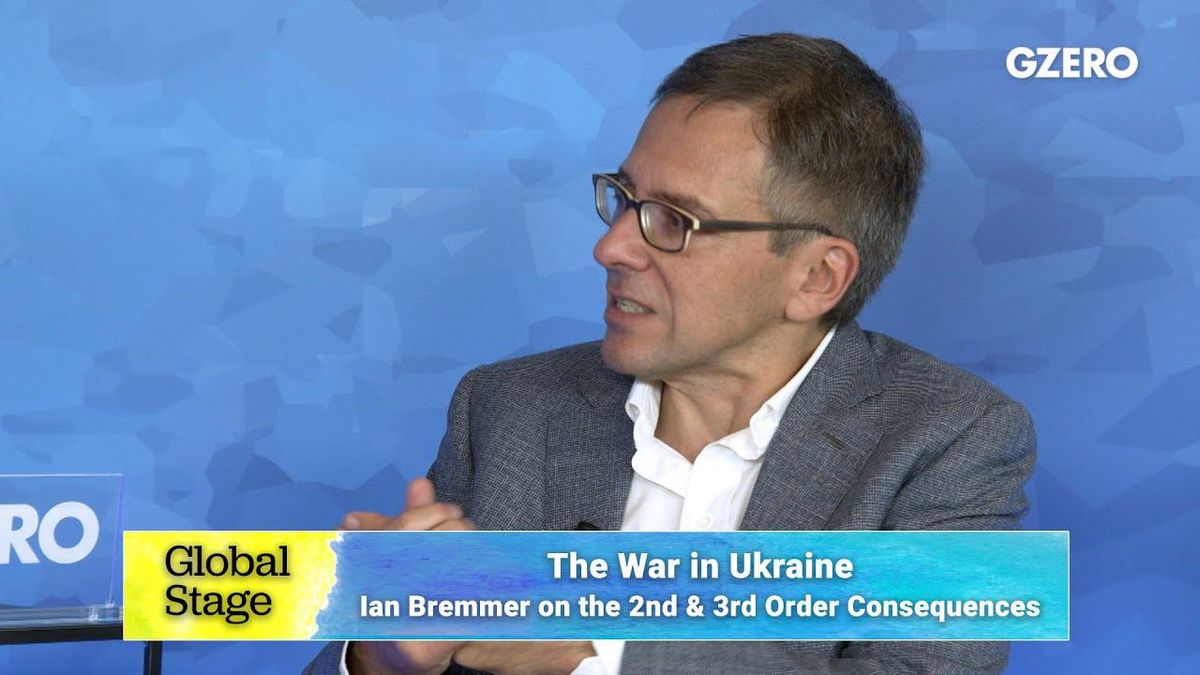World leaders attending the 2022 World Economic Forum in Davos know there's a crisis going on — but Ian Bremmer thinks they are still unaware of the first- and second-order consequences of Russia's war in Ukraine.
First, "people are mostly thinking about this as a war inside Ukraine. It's not a war in Ukraine. It's actually a war between Russia and NATO," the president of GZERO Media said Global Stage livestream conversation hosted by GZERO in partnership with Microsoft.
What's more, he explained, NATO is doing everything it can to degrade Russia's capabilities and welcoming Finland and Sweden, so very soon "NATO and Russia are going to be in some level of not just cold war, but have some aspects of [a] hot war."
Second, the war in Ukraine matters so much more than other deadly conflicts in Afghanistan, Syria, or Yemen due to the knock-on effects for global commodity prices of energy, fertilizer, or food.
For Bremmer, many countries that haven't paid attention, perhaps because they think it's just America's or Europe's problem, will have to reverse course because the impact on their governments will be dramatic.
Watch more of this Global Stage discussion: "Crisis in a digital world"
- Ian Bremmer: Russia's war in Ukraine makes Davos "discomfiting" ›
- Highlights from Davos 2022 - GZERO Media ›
- Is the world coming apart? Drama at Davos - GZERO Media ›
- Ukraine war dominates Davos discussions - GZERO Media ›
- Wolfgang Ischinger: Ukraine made German foreign policy go "out ... ›
- More Russia-NATO confrontation ahead in Ukraine war - GZERO Media ›
- Macron's speech weakens the West's unity against Putin - GZERO Media ›
- 6 months of Russia's war in Ukraine - GZERO Media ›

















